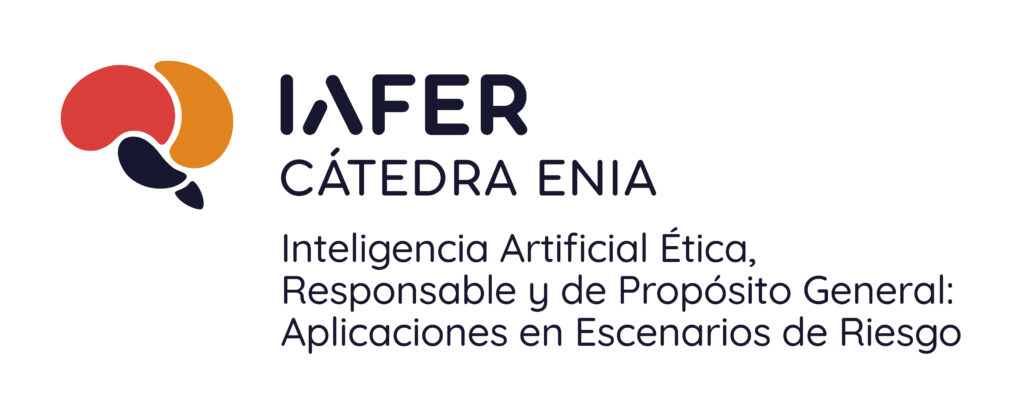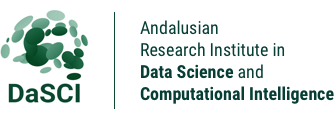11 FEB – Day of Women and Girls in Science. DaSCI Edition 2025
10 February, 2025
On 11 February we commemorate the International Day of Women and Girls in Science, a key day to highlight the role of women in science and technology, as well as to promote equal opportunities in these disciplines. In Spain, the central theme this year will be mental health, a fundamental aspect both for the well-being of those involved in science and for the construction of a more inclusive academic and professional environment.
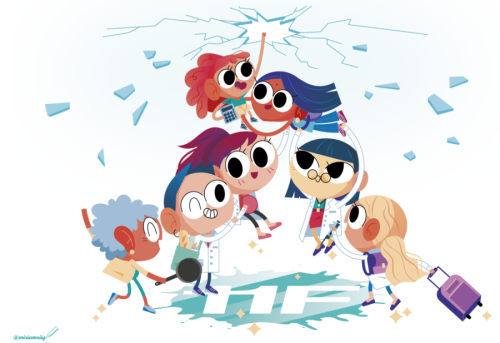
A day for reflection and action
This day, proclaimed by the United Nations General Assembly in 2015, aims to reduce the gender gap in science and technology. Despite progress, women are still underrepresented in many STEM (Science, Technology, Engineering and Mathematics) areas, facing barriers such as lack of role models, gender stereotypes or difficulties in developing their professional careers.
In the field of Artificial Intelligence, this inequality is also evident. According to various studies, the presence of women in this field is still low, which impacts not only on the diversity of research teams, but also on the technology itself that is developed. AI is a tool that shapes our society, and it is essential that it is designed from an inclusive and equitable perspective.
Mental health in science
This year’s focus on mental health is particularly relevant. Scientific careers can be demanding and highly competitive, which, coupled with gender inequalities, has a significant impact on the emotional health of many female researchers. There is a need to promote a healthy working environment, with institutional support and a culture that values psychological well-being as much as academic performance.
Activities and resources
In Spain, the 11 February movement coordinates numerous activities in schools, universities and research institutions. These initiatives aim to bring science closer to girls and young women, highlight female role models and encourage scientific vocations without gender bias. All the information on events and resources can be found on the official website: https://11defebrero.org/.
All these activities, among others, are organised in Granada.
From our Artificial Intelligence research centre we join this celebration, reaffirming our commitment to equality in science and the development of responsible and inclusive technologies. We invite the whole community to participate in the activities and to reflect on how we can contribute to a more equitable and diverse science.
OFFICIAL EVENT 11F at the University of Granada
The University of Granada is organising a meeting, reading of a manifesto and institutional photography to be held at the Escuela Técnica Superior de Ingeniería de Caminos, Canales y Puertos at 11:00h on 11 February.
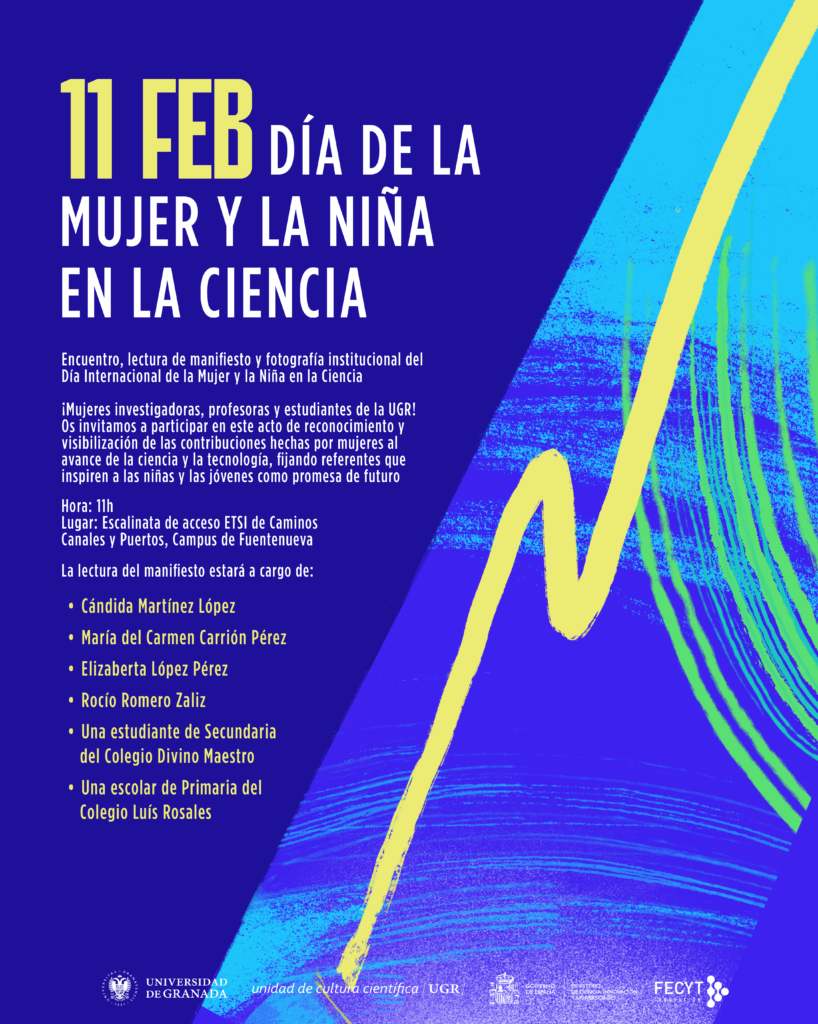
Organised by the Communication Office and the Scientific Culture and Innovation Unit of the UGR with the collaboration of the Spanish Foundation for Science and Technology – FECYT, Ministry of Science, Innovation and Universities. The staircase leading to the ETSI de Caminos, Canales y Puertos will be the backdrop for the meeting.
On that day and as a central event, a manifesto reading has been called by a group of women and girls, personifying the female presence in university science. Researchers Cándida Martínez López, Emeritus Professor of Ancient History; María del Carmen Carrión, Professor in the Department of Applied Physics; Elizaberta López Pérez, Lecturer in the Department of Sculpture; and Rocío Celeste Romero Zaliz, Lecturer in the Department of Computer Science and Artificial Intelligence and colleague at DaSCI, will be present. In addition to them, as representatives of the UGR, there will be two more representatives of the children and youth of Granada, potential promises for the future of science: a teenager, a secondary school pupil from the Divino Maestro School, and a girl, a primary school pupil from the Luís Rosales School.
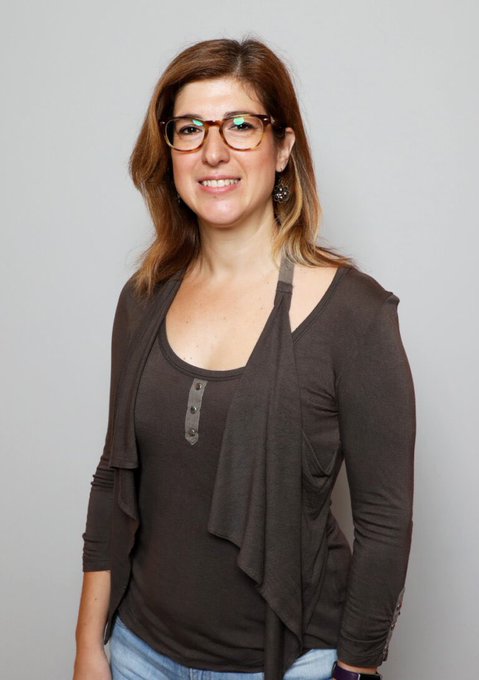
Messages from female researchers to their past self – 🔬✨ Dear past self…. ✨🔬
All women scientists were once curious children. To celebrate 11F, the Day of Women and Girls in Science, the researchers at our centre have written a message to their past selves, together with a photo of when they were children. With these words, which they would have liked to hear when they were dreaming of the future, they also send a message to the girls of today: science is an open path for them.
Because every girl who asks questions, who observes the world with wonder, who wants to understand how everything works, can be the scientist of tomorrow. And here we are, to remind them of that.
💡 What would you say to your little self? 💡
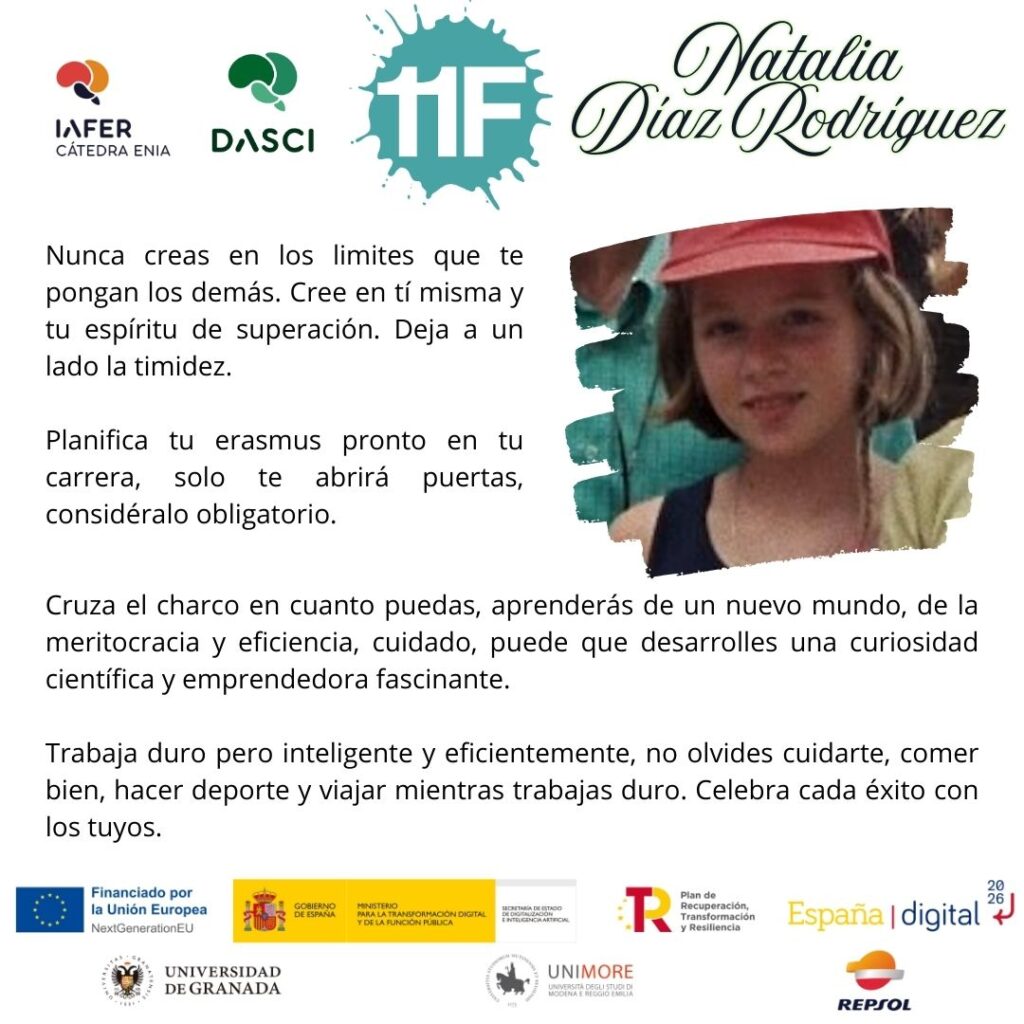
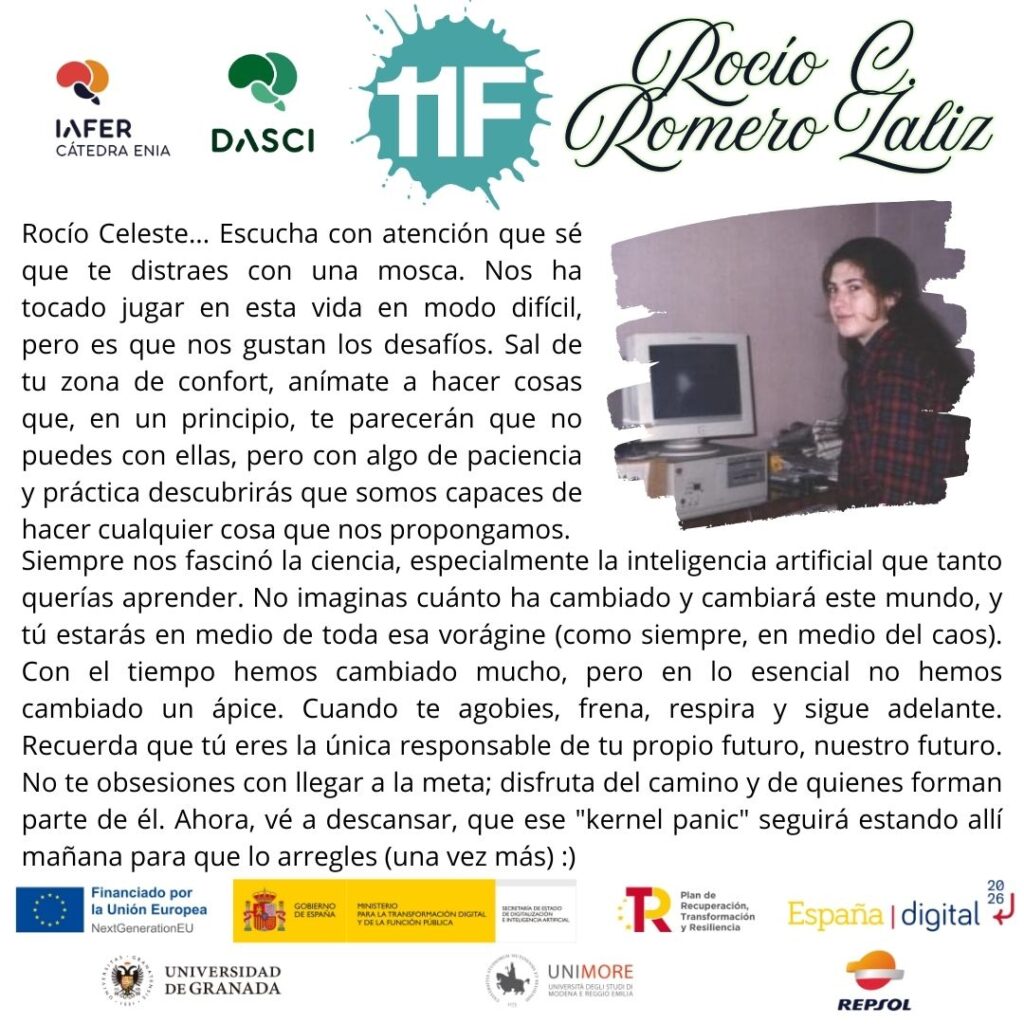
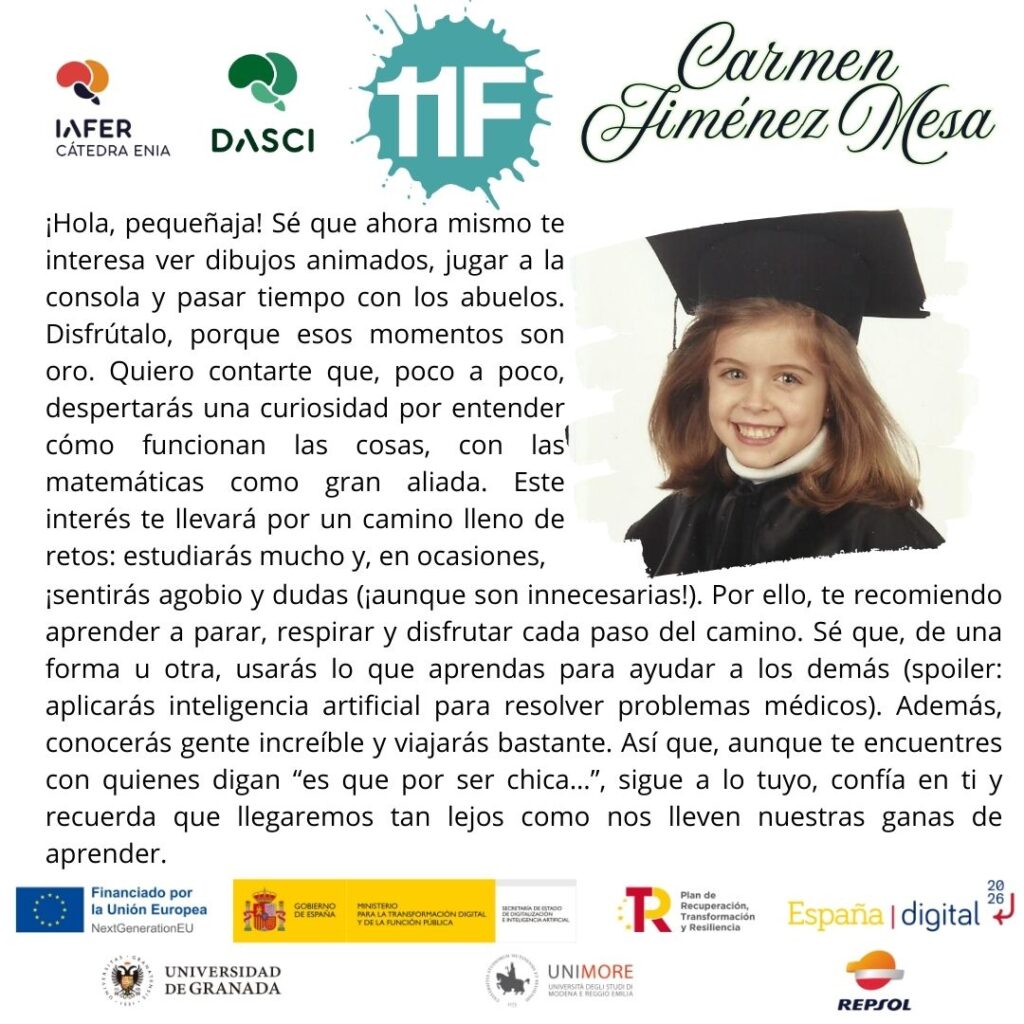
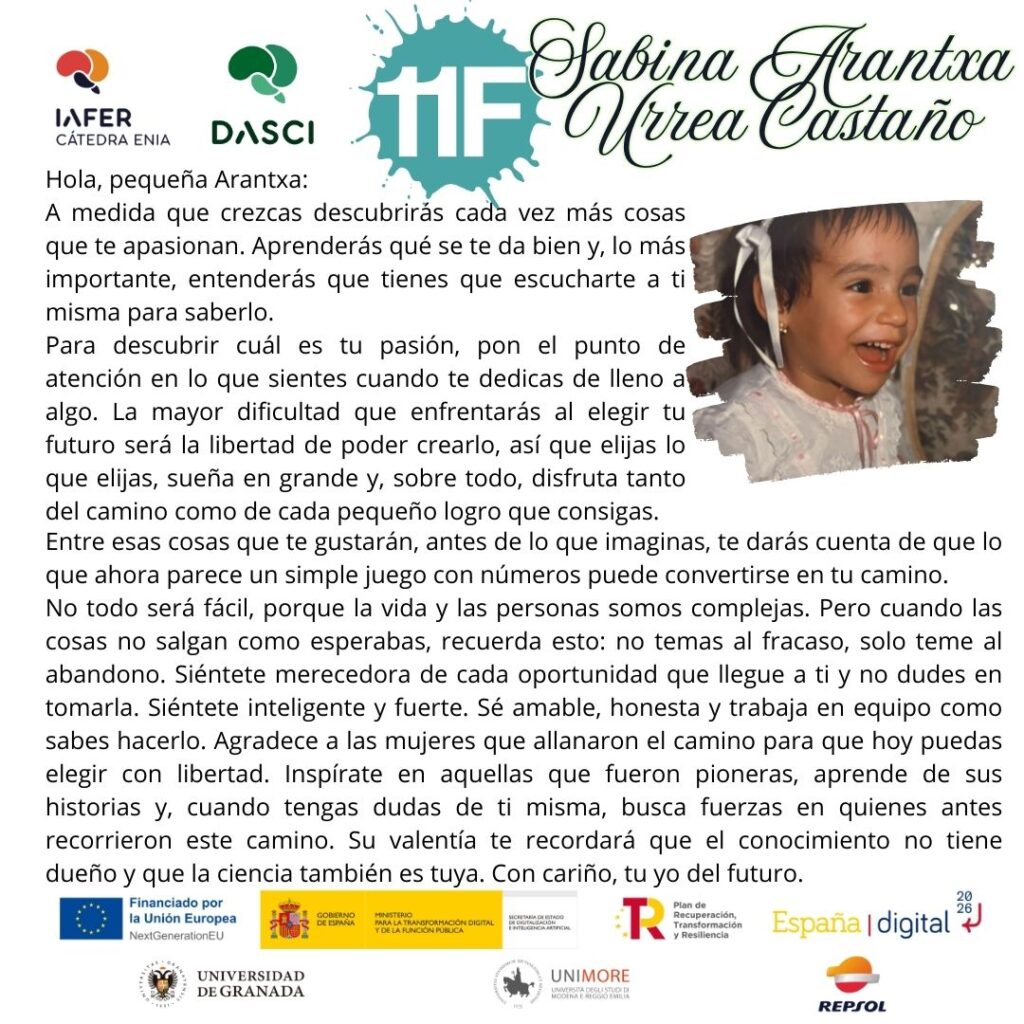
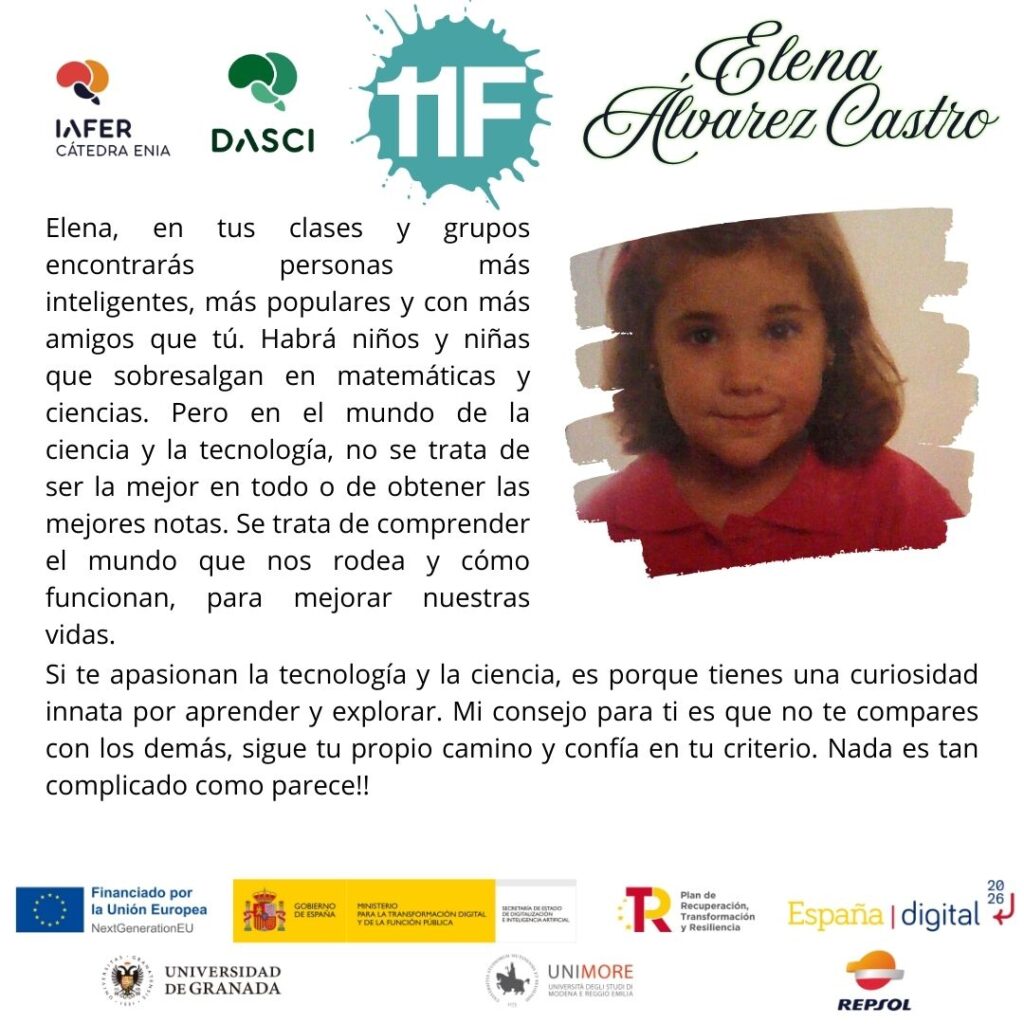
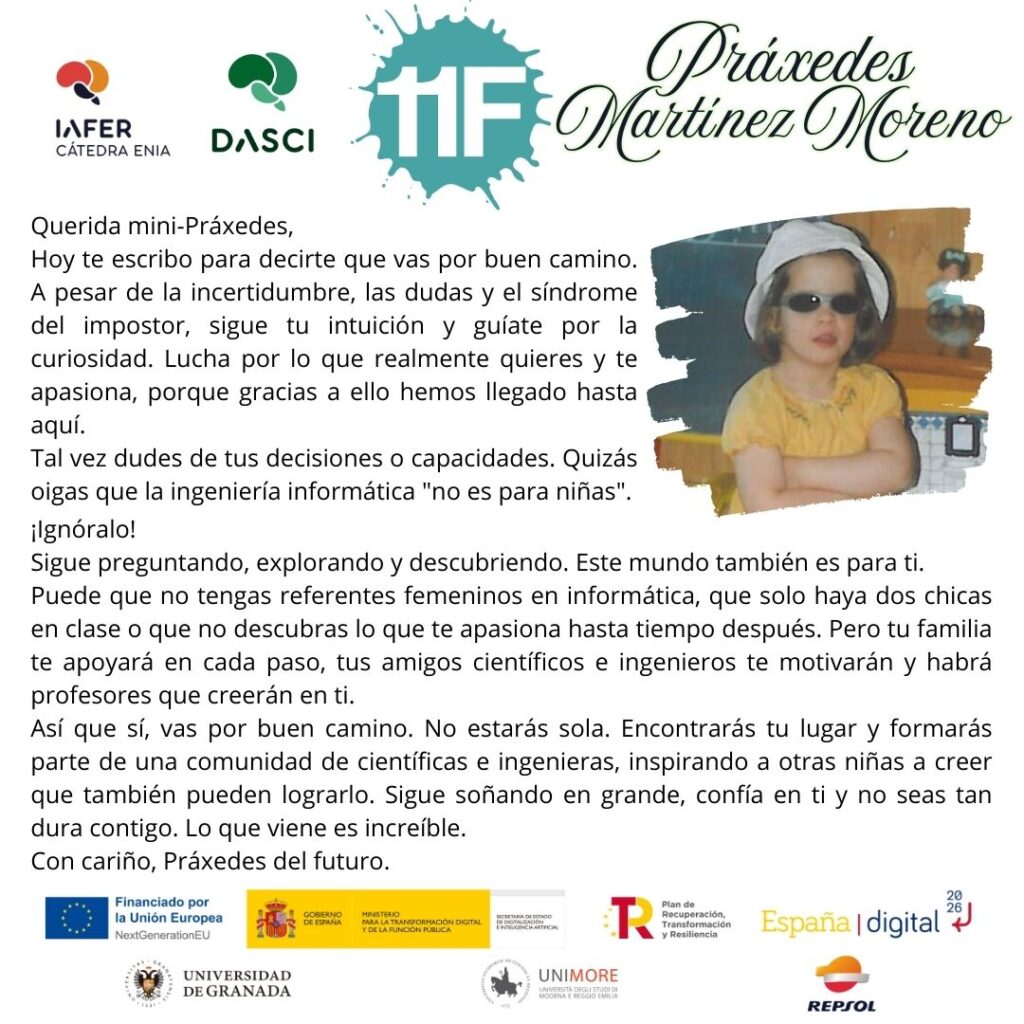
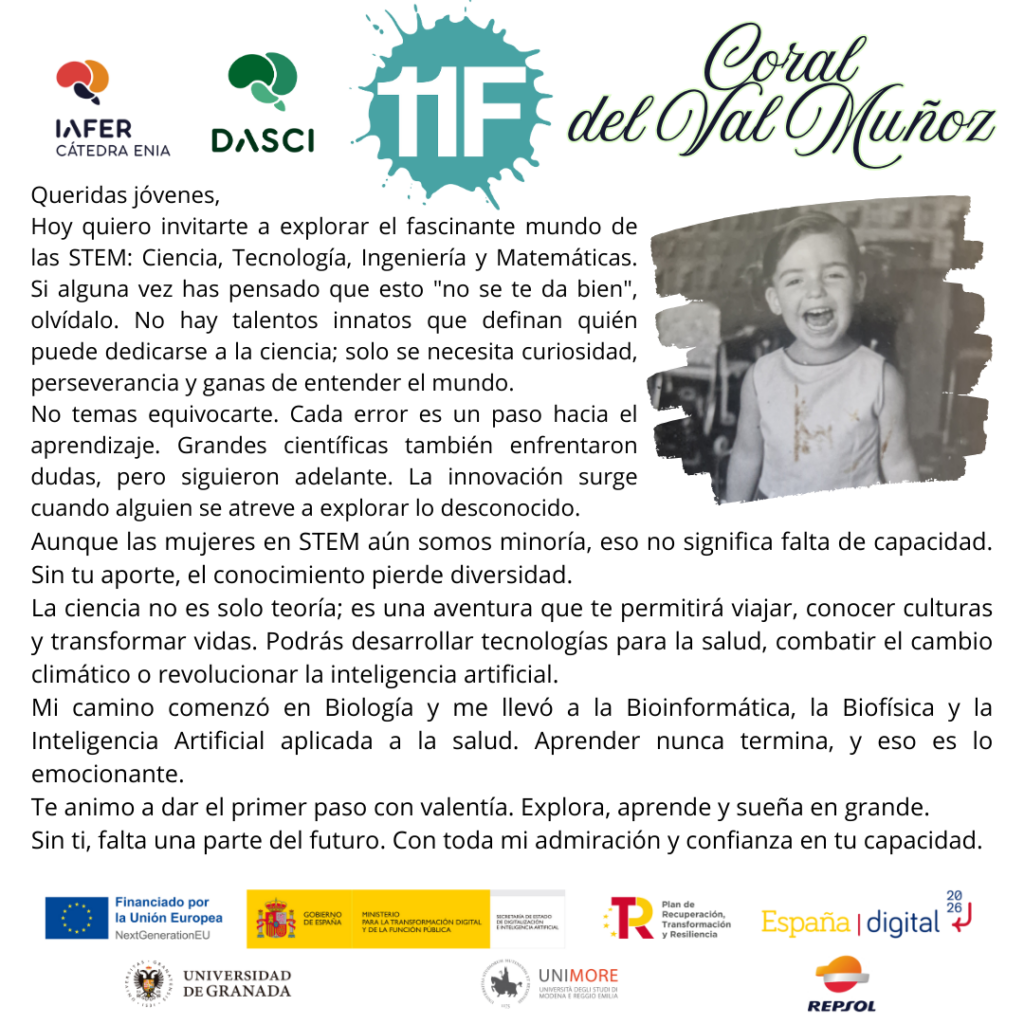
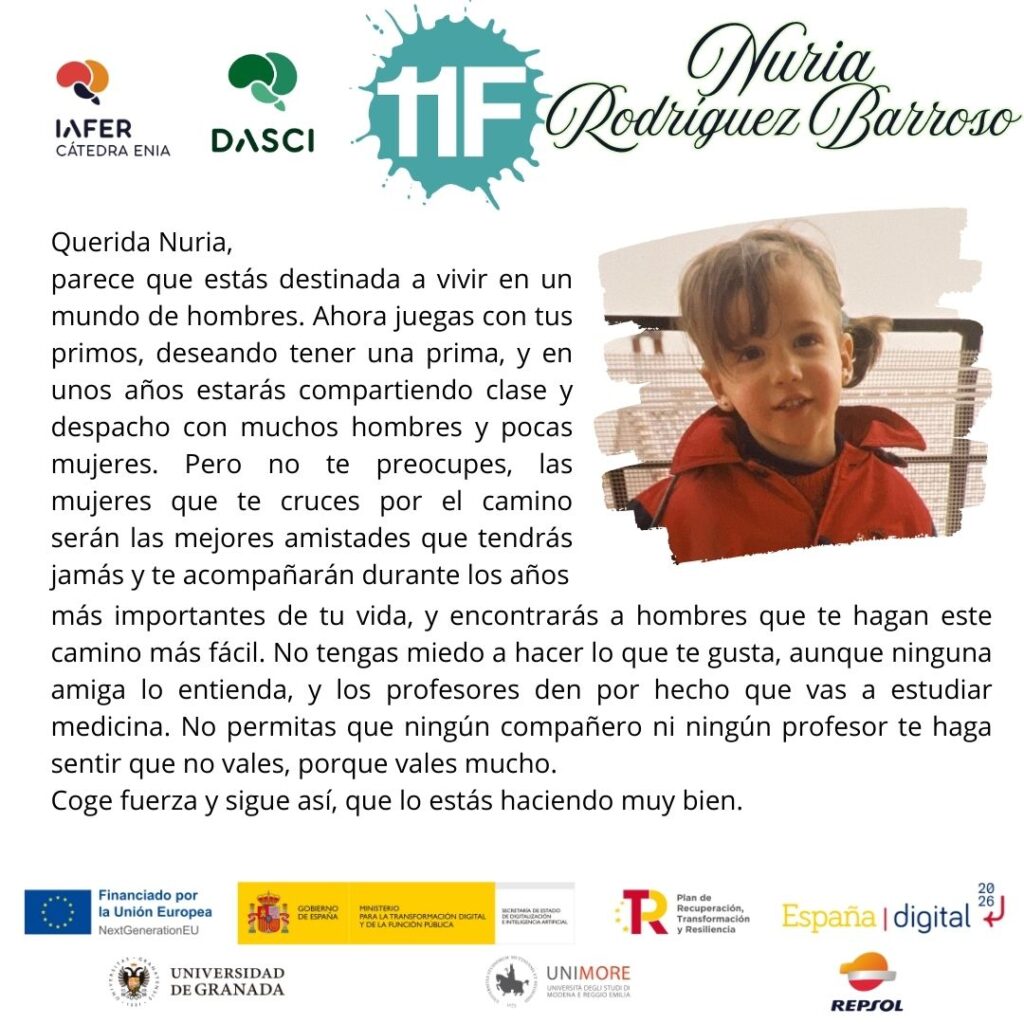
Our colleague Coral also wanted to share a more extensive letter, which you will find below:
Without You, Part of the Future is Missing
Dear young people,
Today I am addressing you, that curious mind full of potential that can change the world, to invite you to explore the fascinating universe of STEM: Science, Technology, Engineering and Mathematics. You may have said the phrase ‘I’m not good at this’, but I want to invite you to forget it. There is no innate talent that determines who can or cannot go into science. All you need is curiosity, perseverance and a desire to understand the world around you.
Don’t be afraid to make mistakes. Every mistake is a step towards learning, every stumble an opportunity to grow. The great women scientists of history also faced doubts and challenges, but they didn’t let that stop them. They were not afraid to be different or to stand out by choosing an unusual path. Innovation and discovery happen when someone dares to explore the unknown.
I know that women in STEM are still in the minority today, but that doesn’t mean there is a lack of capacity, it just means that the field is still waiting to be transformed by minds like yours. Without your contribution, knowledge loses a fundamental part: the diversity of ideas and approaches that only you can bring. The world needs women scientists, engineers, programmers and mathematicians to challenge boundaries and redefine what is possible.
Science is not just theory and numbers; it is an adventure full of surprises. Through it, you can travel, meet people from different cultures and discover new ways of understanding reality. It is also a powerful tool for changing lives: imagine developing technology that helps people with disabilities, finding a solution to climate change or designing the next big innovation in artificial intelligence.
My path in STEM started with Biology, but curiosity took me further. From Biology I moved on to Bioinformatics, then to Biophysics and finally to Artificial Intelligence applied to health. And if I had more lives, I would also explore Physics, Engineering and so many other branches of knowledge. Learning never ends, and that is the most exciting thing.
Today I want to invite you to take that first step with courage. Allow yourself to explore, to fail, to learn and to dream big. The future needs your creativity, your intelligence and your unique vision. Don’t let anyone tell you what you can or cannot achieve. Without you, a part of the future is missing.
With all my admiration and confidence in your ability,
Coral del Val Muñoz
Profesora Titular de Universidad Departamento de Ciencias de la Computación e Inteligencia Artificial. Andalusian Research Institute in Data Science and Computational Intelligence
Talks and Conferences
The University of Granada has organised more than 90 conferences in schools and institutes of the province with researchers from the University.
Our colleague Coral del Val will give an online talk on 11 February to students aged between 6 and 11 years old at CEIP Encarna León in Melilla.
She will also give a lecture at the IES Padre Manjón secondary school in Melilla.
THE SCIENCE COUNTS – University of Cordoba
On 8 February, the Teatro Góngora in Cordoba was once again full of women science communicators in a day dedicated to debunking old myths and new hoaxes. Las que cuentan la ciencia is an outreach event organised by the University of Cordoba, in collaboration with the Fundación para la Ciencia y la Tecnología del Ministerio de Ciencia, Innovación y Universidades, Fundación Maldita.es and The Conversation.
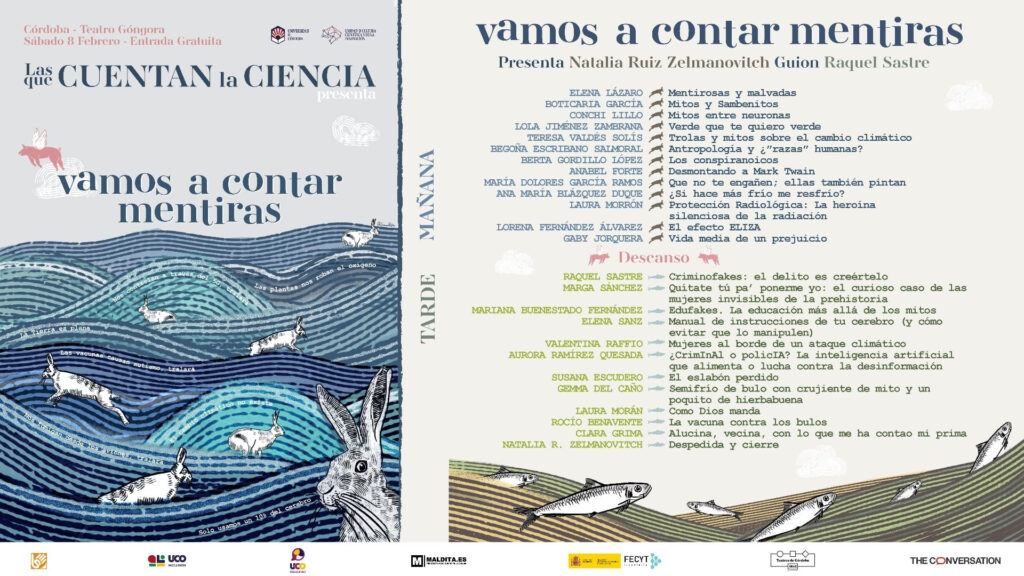
Among the 23 speakers was our colleague Aurora Ramírez Quesada with her lecture ¿CrimInAl or policIA? Artificial intelligence that feeds or fights against disinformation.
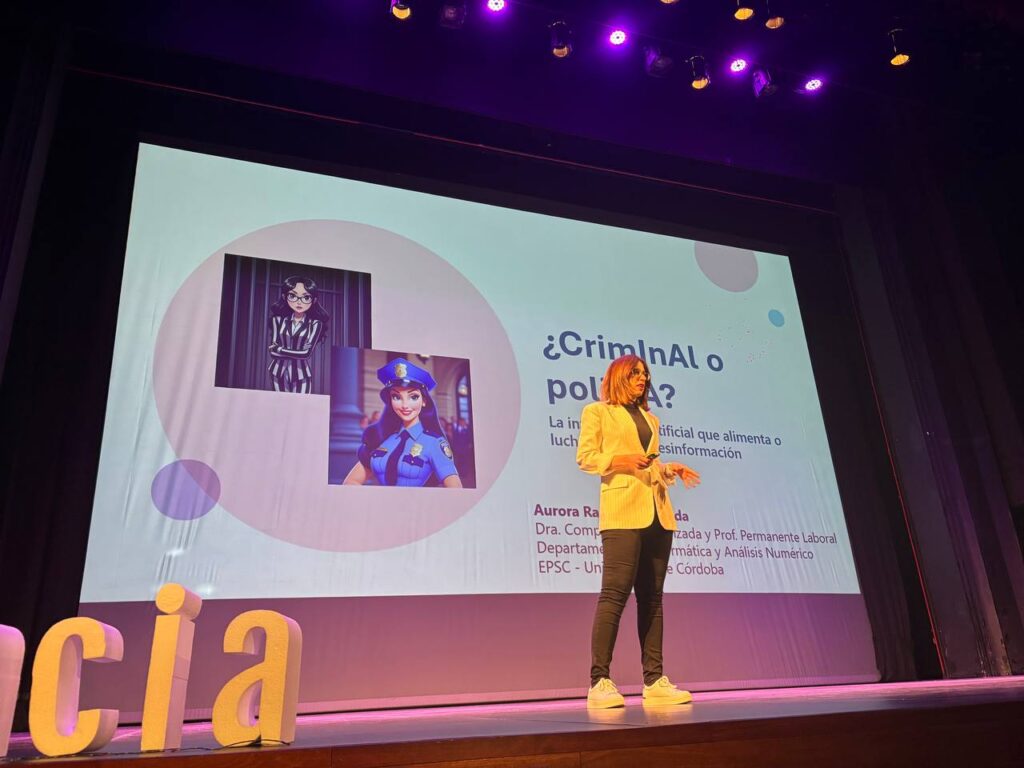
This initiatie is part of the project ‘Ethical, Responsible and General Purpose Artificial Intelligence: Applications in Risk Scenarios (IAFER)’ Exp.: TSI-100927-2023-1 funded through the creation of university-industry chairs (Enia Chairs), aimed at research and development of artificial intelligence, for its dissemination and training in the framework of the European Recovery, Transformation and Resilience Plan, funded by the European Union-Next Generation EU.
